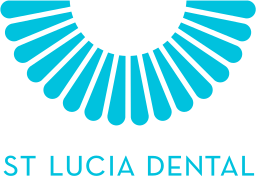The feeling of being afraid or nervous when going to the dentist is defined as Dental Anxiety. Experiencing this anxiety can vary in degrees of severity, from slight unease to a highly prohibitive phobia.
Feelings of anxiety and fear towards receiving dental treatment may be due to a variety of reasons. Some of the most common are:
Specific procedures (such as fillings) related to dental pain. Intimacy of a check up, feeling a lack of control. Reproach toward the informed state of your oral health. The clinical environment. Phobia of needles.No matter the reason or degree of your discomfort, there are a variety of ways to overcome these anxieties as well as steps you can take toward making your dental trip a much more positive experience.Most importantly, you must realise and remember when taking these steps that the avoidance of regular check-ups can be seriously detrimental to your oral health as well as the associated fear. Breaking the negative cycle of neglect toward oral health is paramount in avoiding serious health conditions.If you are nervous about seeing a dentist, the best thing you can do is speak with us and let us know your feelings. Together, options can be explored and in many cases, a patient’s mind can be put at ease purely by building up confidence and a close relationship.At St Lucia Dental, we understand apprehension may happen from time to time and take pride in being able to provide comfort to our patients by offering a range of relaxation therapies to make your dental experience a more relaxing one.Once you have arrived at your appointment, there are a range of options (both with and without sedation) available to put you at ease.Talking to your Dentist
The first and best course of action is speaking with your dentist before the check up or possible treatment to make the situation clear. Be sure to ask as many questions as you want in order to feel at ease.The distraction technique
Perhaps the most straightforward strategy to use involves keeping your mind off the procedure itself using stimuli in which you take comfort from. For example, depending on the nature of the procedure it may be possible to use audible stimuli such as music or an audio book. Enquire as to whether this is possible beforehand.Bring a friend
Support from a friend or loved one is a popular and effective means of boosting confidence. Many individuals who experience dental anxiety fare better in the comfort that they are not alone and our dentists are happy for you to be accompanied.Inhalation sedation
Commonly known as ‘laughing gas’, is where you are administered nitrous oxide via inhalation during your procedure. This will help you to relax and subside anxious feelings about the treatment you are receiving. Use of this type of sedation has no after-effects so you are able to return to your daily routine immediately after the procedure.Oral sedation
This proven method of relieving apprehensive feelings of stress and anxiety, involves you (one hour prior to your treatment) administering a sedative medicine. Providing gentle treatment along with thoughtful communication is our main priority, so we can help even the most nervous patient feel quickly at ease.Sedation is a beneficial means of ensuring that you are relaxed about dental treatment and often remember little about the procedure. However you still awake throughout the process and can still respond to instructions from our clinical team.Can I request sedation if I’m afraid of the dentist?
This will primarily depend on the state of your health and the recommendation your dentist provides during the consultation period. Our primary focus is to work with you and help you feel as comfortable as possible. We will strive to provide means of dispelling any fears or anxieties a patient may have with option to any of the aforementioned techniques.Manifestation of dental phobia can occur in many ways – and not just as a strong reluctance towards regular check ups.
Of course, missing appointments can result in serious consequences for your oral health, so it’s imperative that nervous patients receive help in order to overcome their fear, ease their anxieties and break any cycle of negative association with the dental experience.
